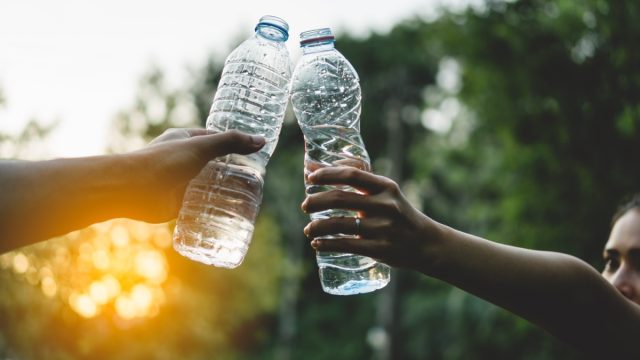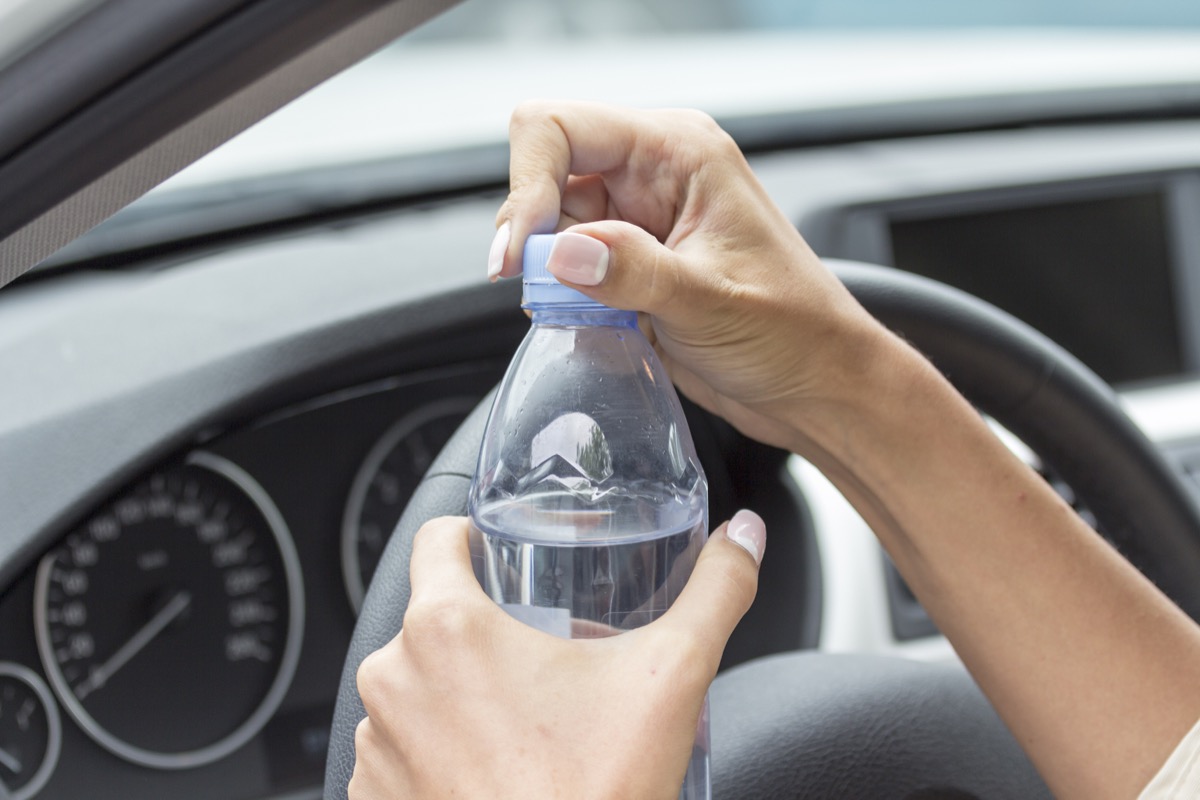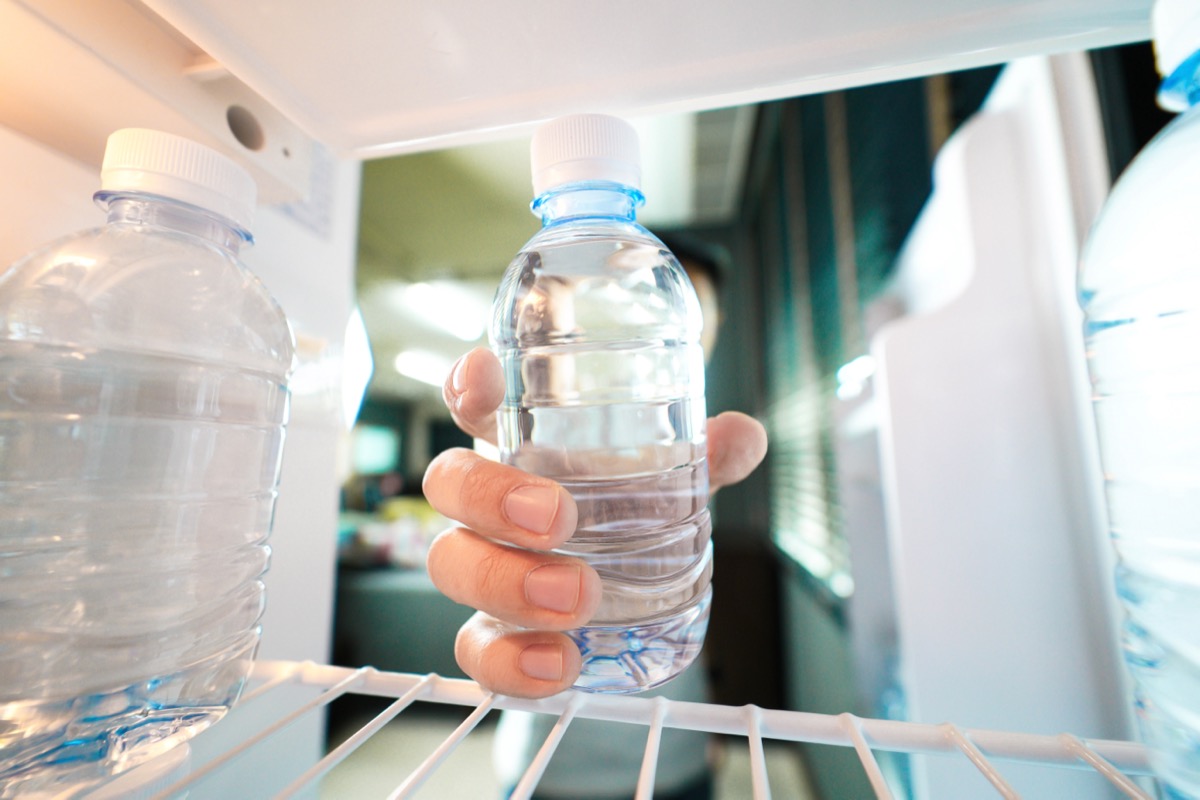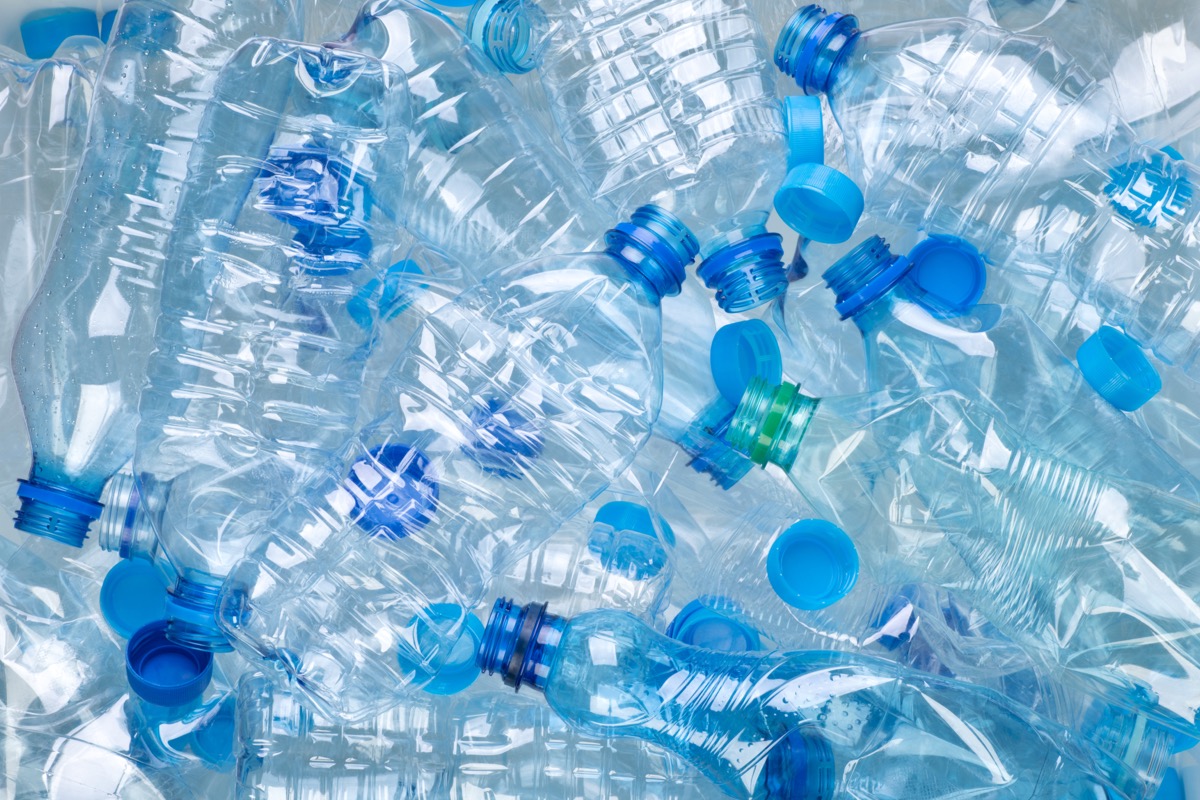4 Reasons to Never Reuse a Plastic Water Bottle, Experts Say

Whether hoping to save time, money, or the environment, many Americans make the mistake of washing and refilling single-use plastic water bottles. Experts say this can pose a danger to your health—not to mention to the environment. But just how different is reusing a grocery store-bought bottle from the truly reusable kind? We reached out to a range of experts to find out whether reusing your bottles could be harming your health—and their answers may surprise you. Read on to learn the four reasons that single-use water bottles are just that, and to find out why stainless steel and glass bottles are considered by far the best.
READ THIS NEXT: Walmart Is Getting Rid of Plastic and Paper Bags at 111 More Locations, as of April 18.
Reused water bottles can harbor harmful bacteria.

According to Brian Campbel, founder and chief water treatment expert at waterfilterguru.com, the best argument against reusing a plastic water bottle is that they tend to harbor harmful bacteria. He notes that when people clean water bottles to reuse them, “they may not be cleaning them properly, which can lead to bacterial growth. Additionally, the plastic may develop small cracks or scratches over time, which can create areas for bacteria to grow and accumulate. This can lead to potential health risks, including gastrointestinal illness and other infections,” says Campbel.
If you happen to leave your water bottle in a warm or hot environment between uses—in a sunny car or your gym bag, for example—you should assume that bacteria has multiplied even more efficiently. Truly reusable water bottles are designed to stand up to frequent washing, so they won’t incur the scratches and dings that help bacteria hide.
READ THIS NEXT: What Happens If You Drink Out of the Same Water Glass for a Week, According to Doctors.
They can leach chemicals into your beverage.

Water bottles can be made from a range of plastic types, some of which are safer than others, Campbel says. To find out which material your bottle is made of, you can look at the recycling code on the label, which will include a number from one to seven on it. These days, most single-use water bottles will be marked with a one, meaning they’re made of polyethylene terephthalate (PET or PETE). Though these are free of bisphenol A (BPA) and phthalates, they can sometimes contain antimony, a semi-metal material which is considered a possible carcinogen.
Bottles labeled with recycling codes that bear other numbers may contain additional chemicals. For instance, those marked with a seven are made from polycarbonate plastic. According to Harvard’s School of Public Health, polycarbonate plastic contains BPA, “a chemical that has been linked in animal studies to developmental, reproductive, and metabolic health problems.”
For more health news sent directly to your inbox, sign up for our daily newsletter.
They also contain microplastics.

Heather Wilde, NMD, a naturopathic doctor based in Tempe, Arizona, warns that single-use water bottles can also leach microplastics into your drink if you reuse them. In fact, a 2018 study published in the journal Frontiers in Chemistry looked at samples taken from 259 bottled waters and found that 93 percent of those samples showed signs of “microplastic contamination.”
Though scientists are still working to understand the effects of ingesting microplastics, one study published in the medical journal Endocrine Reviews found that consuming microplastics can disrupt the endocrine system, the network of hormone-releasing glands and organs that regulate metabolism, growth and development reproduction, and more. Another study published in Frontiers in Environmental Science concluded that consuming microplastics could cause oxidative stress, cytotoxicity, neurotoxicity, and immune system disruption.
Wilde believes that many people consume microplastics at dangerous levels, and suggests that quitting single-use water bottles could help curb the problem. “It is estimated you eat about a credit card’s-worth of plastic a week, and these invisible particles are one of the main culprits,” she tells Best Life, referencing a 2019 report from the World Wildlife Fund (WWF).
They’re an environmental hazard.

Finally, there’s one more important reason to never refill single-use water bottles—from an environmental perspective, it’s best to skip buying them in the first place. “The entire life cycle of bottled water uses fossil fuels, contributes to global warming, and causes pollution,” writes Harvard University’s Office for Sustainability. They add that every year, 17 million barrels of oil are used to produce enough plastic water bottles to meet America’s annual demand for bottled water, and 86 percent of single-use water bottles wind up in landfills or as litter.
So, while your efforts to reuse your water bottle may be coming from the right place, Zeeshan Afzal, MD, a medical officer for Welzo, says it’s better to plan ahead by getting a reusable water bottle made of stainless steel or glass. “Refilling plastic water bottles undermines the sustainability benefits of using reusable water bottles,” says Afzal. “Plastic water bottles are a major contributor to plastic waste and pollution, and refilling them perpetuates this cycle,” he tells Best Life.